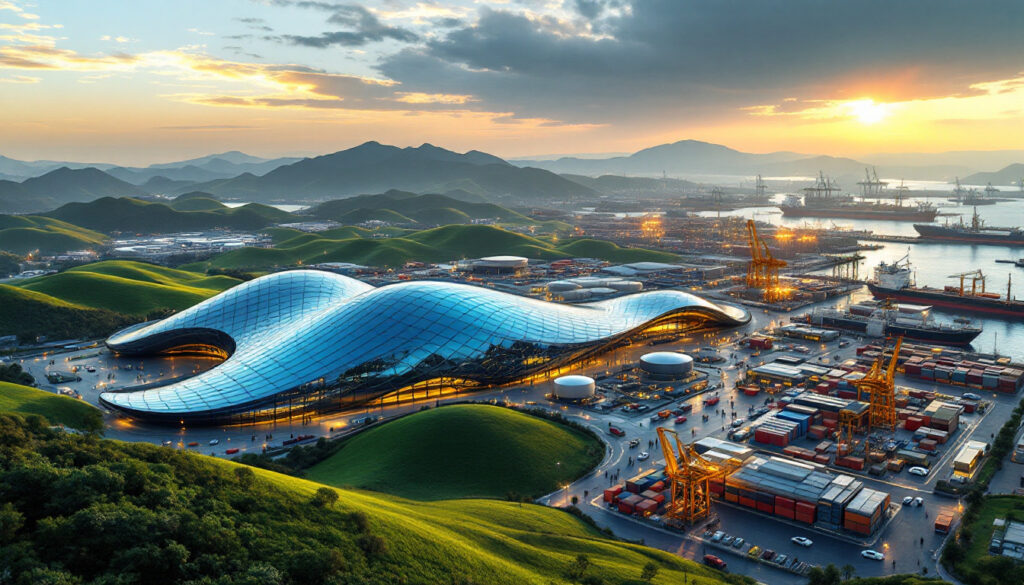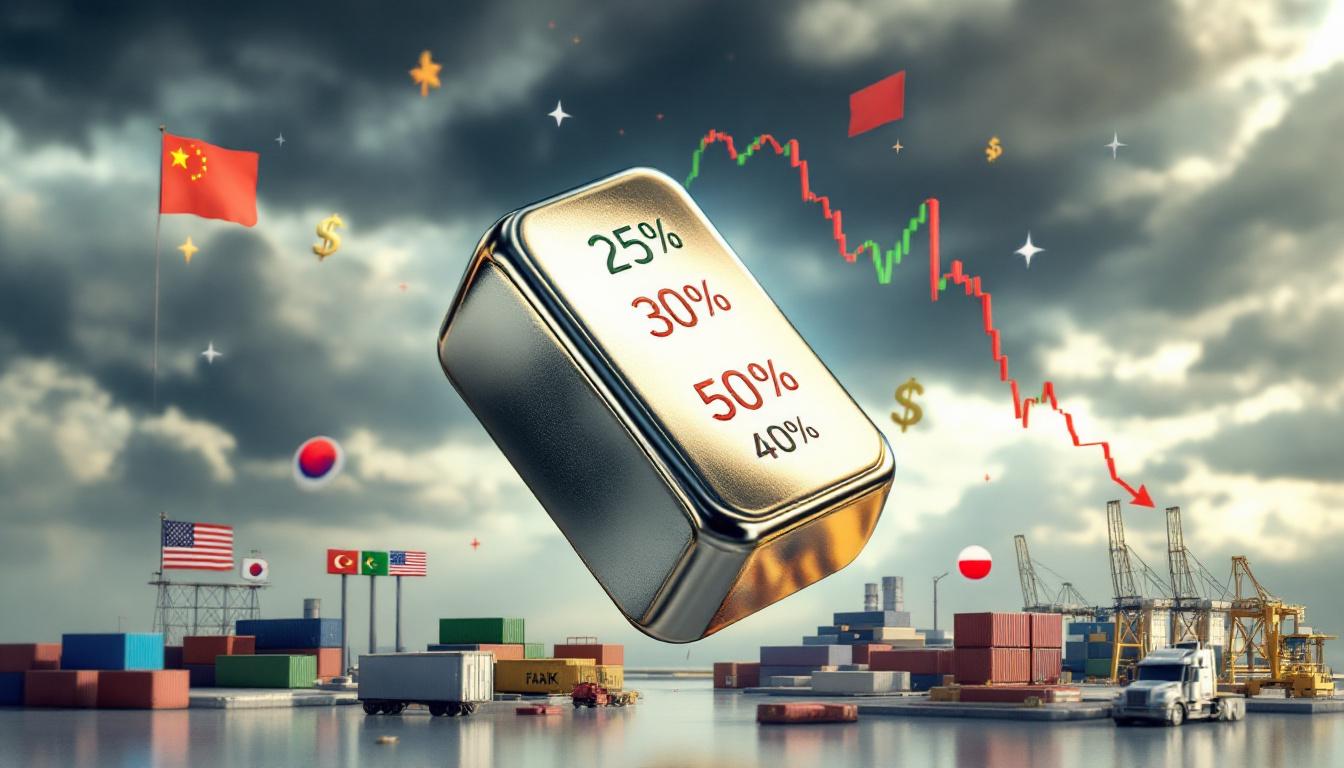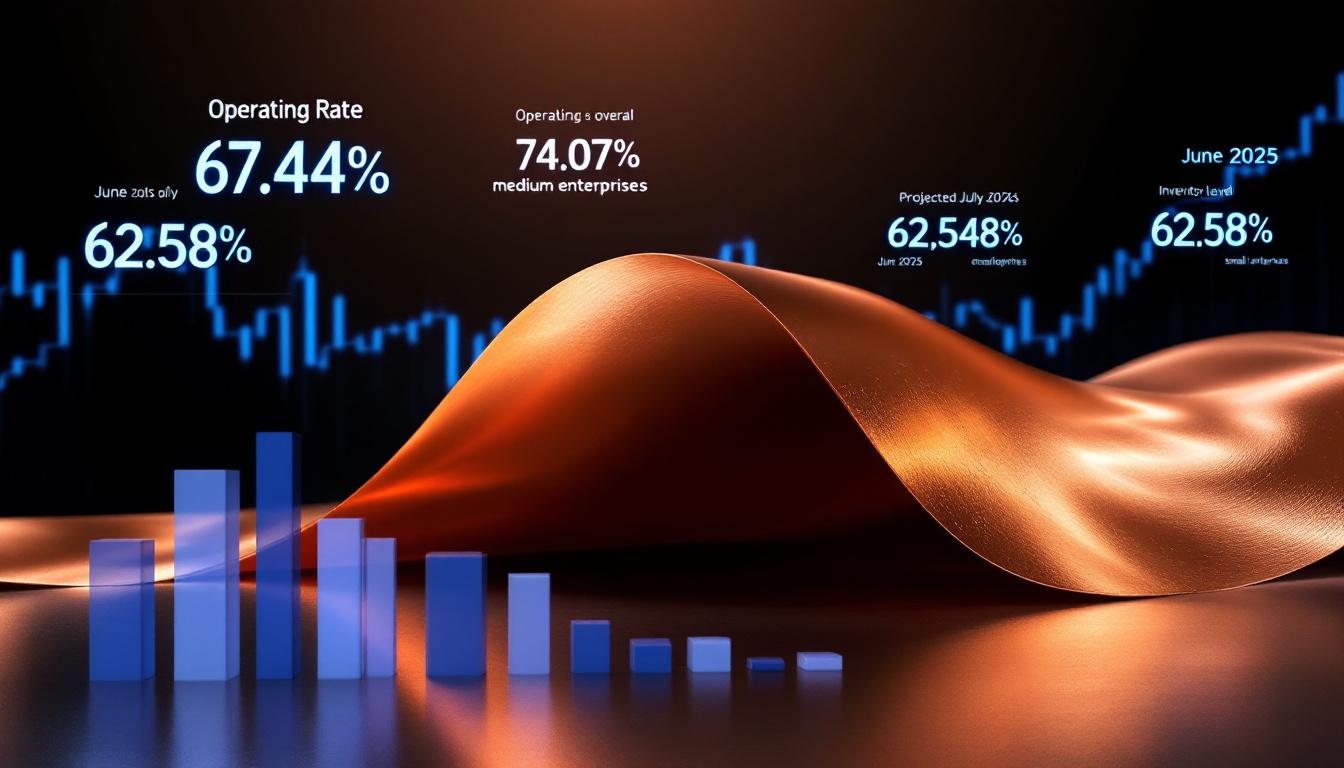How is South Korea Expanding its Battery Sector?
Global battery demand is surging as the industry undergoes a rapid transformation. In this context, how South Korea is partnering with Aussie miners to power its blossoming battery sector 2025 has become a pivotal discussion topic. Manufacturers have embarked on aggressive capacity expansion while securing key raw materials. Furthermore, companies are forging strategic alliances to ensure supply chain resilience.
The global battery industry reached an all-time high of 1 terawatt hour (TWh) in 2024. This record milestone resulted from increased electric vehicle adoption and renewable energy storage deployment. In addition, such growth supports emerging trends like how South Korea is partnering with Aussie miners to power its blossoming battery sector 2025. Government policies have bolstered these efforts from the start.
South Korean firms plan to add nearly 400 gigawatt hours (GWh) of new capacity, outpacing rivals in Japan and China. In addition, manufacturers are targeting the United States market, where they could control 49% of battery capacity by 2030. This aggressive expansion is intricately linked to integrated supply chains and strategic international investments.
What's Driving the Global Battery Industry Transformation?
Fundamental market shifts are transforming the battery industry. Lithium prices have plunged roughly 70% from their 2022 peaks. Consequently, cost structure dynamics now favour integrated players with diversified supply chains. Integrated battery manufacturers are increasingly resilient to market fluctuations while their economies of scale improve global competitiveness.
Furthermore, global deployment surpassed 1TWh in 2024. This breakthrough was driven by years of technological advancements and increased manufacturing scale. In addition, regional manufacturing hubs and government support have helped shift how South Korea is partnering with Aussie miners to power its blossoming battery sector 2025.
Key factors influencing change include:
- Reduced lithium prices, which improve overall battery viability.
- Expanded government incentives that support R&D and tax breaks.
- Vertical integration strategies that reduce dependence on imported materials.
These factors come together to reshape the battery landscape, ensuring that investments flow throughout the entire value chain.
Who Are the Key South Korean Battery Players?
South Korea is home to industry giants like EcoPro and Posco. EcoPro is a global leader in high-performance battery materials and is renowned for its proprietary techniques in nickel-rich cathode production. Its innovations, such as innovative lithium production techniques driving clean energy, serve as a benchmark in efficiency and quality.
Posco, traditionally a steel manufacturing titan, has expanded its focus to include battery materials. The company now controls everything from lithium extraction to recycled materials. In addition, Posco’s recycling methods are part of europe's battery recycling revolution, showcasing its commitment to a circular economy.
Both companies have embraced a strategy centred on raw material security. They are committed to securing high-quality minerals through partnerships with Australian mining companies. This strategy not only ensures stable supply but also reinforces how South Korea is partnering with Aussie miners to power its blossoming battery sector 2025.
How is EcoPro Expanding its Global Footprint?
EcoPro is pursuing a global expansion strategy with a focus on vertical integration and next-generation battery technologies. The company is establishing an integrated cathode material production facility in Indonesia, positioning itself near important nickel deposits. In addition, this facility will further strengthen regional supply chains.
Moreover, EcoPro is investing in all-solid-state batteries to enhance energy density and safety. Strategic partnerships now span the entire production chain—from smelting to precursor development. Consequently, these alliances are critical for ensuring quality. For instance, its collaboration with China’s GEM leverages mutual strengths in battery recycling and advanced materials processing.
EcoPro’s stakes in Australian mining firms further illustrate its commitment. These investments secure priority access to essential raw materials and further the broader trend of how South Korea is partnering with Aussie miners to power its blossoming battery sector 2025. The company continues to set benchmarks in environmental efficiency and technical innovation through its dedicated strategies.
An external perspective on such initiatives is provided by industry reports such as those exploring onshore battery initiatives. This highlights international interest in replicating similar integrated approaches.
What Strategic Partnerships Exist Between South Korean Companies and Australian Miners?
Posco and EcoPro are forging significant partnerships with Australian miners. Posco has inked a memorandum of understanding with Hancock Prospecting to build a lithium chemical facility. This project is set to produce 30,000 tonnes annually, blending Hancock’s mineral extraction prowess with Posco’s processing expertise.
In addition, Posco has signed deals with ASX-listed companies such as Syrah Resources, Pilbara Minerals, and Black Rock Mining. These agreements ensure a stable supply of key battery minerals. External perspectives further emphasise the benefits of these alliances; for instance, some reports detail the merits of a solid critical minerals partnership in reinforcing supply chain security.
EcoPro, meanwhile, has invested US$8 million in Green Technology Metals (GT1). This strategic move grants EcoPro exclusive rights to negotiate further investments in GT1’s Seymour and Root lithium projects. These steps are significant for advancing downstream integration and emphasise how South Korea is partnering with Aussie miners to power its blossoming battery sector 2025. Furthermore, such partnerships allow both companies to enhance quality control from mine to cathode.
How is Green Technology Metals Benefiting from South Korean Investment?
Green Technology Metals (GT1) is poised for transformation through its strategic partnership with EcoPro. With exclusive rights for staged asset investments in two promising lithium projects, GT1 is now better positioned in the competitive battery materials market. This integration moves beyond traditional raw material export, capturing more value through local processing.
GT1 is eyeing a pre-feasibility study for a lithium conversion facility. This move intends to produce battery-grade lithium chemicals, ensuring higher margins and greater supply chain control. In addition, GT1’s strategic location offers significant logistical advantages in Ontario’s established industrial cluster.
Through these partnerships, both GT1 and EcoPro are paving new routes for value creation. Their efforts underline how South Korea is partnering with Aussie miners to power its blossoming battery sector 2025. As companies embrace closed-loop systems and enhanced recycling, more sustainable practices are set to dominate the industry.
What Makes Ontario an Attractive Location for Battery Materials Production?
Ontario has rapidly emerged as a premiere destination for battery materials production. The province’s comprehensive industrial network covers the full battery value chain—from mining to manufacturing. In addition, targeted government incentives have attracted over US$44 billion in recent investments from global manufacturers.
Key advantages include:
- Proximity to major North American automotive centres
- Access to high-grade mineral resources
- A skilled workforce committed to clean energy practices
These factors contribute to significant cost savings and streamlined operations in the region. Ontario’s robust infrastructure and supportive policy environment are central to its appeal.
Industry leaders have noted that Ontario represents an ideal environment. Its strategic benefits include efficient transportation and a clean energy grid, making it a natural partner in battery materials production. This supports the wider transformation seen in battery manufacturing trends globally.
What are the Future Trends in the Battery Supply Chain?
The battery supply chain is shifting from regionalised operations to global integrated ecosystems. This evolution is fuelled by scale, vertical integration, and technological differentiation. Manufacturers with gigafactory-scale operations enjoy significant cost advantages over fragmented competitors.
A few emerging trends are worth noting:
- Consolidation of vertically integrated operations from mining through manufacturing.
- Growing emphasis on recycling and circular economy practices.
- Expanding partnerships to secure supply chain resilience.
Furthermore, regional processing centres are gaining importance. Such hubs support local manufacturing and minimise logistics challenges. In addition, companies continue to invest in proprietary technologies that improve battery performance, ensuring a sustained competitive advantage.
These strategic investments and technological innovations are crucial drivers in how South Korea is partnering with Aussie miners to power its blossoming battery sector 2025. Through integrated supply chains and refined processing technologies, the global battery landscape is set to change dramatically.
FAQ: South Korea's Battery Industry and Australian Mining Partnerships
What advantages do South Korean battery manufacturers have in the global market?
South Korean manufacturers benefit from long-standing government support and integrated value chains. Their early investments in R&D and vertical integration have yielded superior battery materials. Strategic partnerships with Australian miners also secure high-quality raw materials, reinforcing how South Korea is partnering with Aussie miners to power its blossoming battery sector 2025.
How are falling lithium prices affecting the battery industry landscape?
A roughly 70% decline in lithium prices since 2022 has reshaped the industry. This correction improves battery economics but compresses margins for non-integrated miners. Companies with end-to-end control enjoy greater resilience and profitability.
What makes Australian miners attractive partners for South Korean battery companies?
Australian miners provide access to ethically sourced, high-quality minerals from politically stable jurisdictions. Their technical expertise compliments South Korea’s advanced processing methods. This partner synergy is essential for maintaining a secure and sustainable supply chain.
How will the US battery market evolve by 2030?
South Korean firms are set to control nearly half of the US battery capacity. Their robust supply chains and technical innovations position them as key players in this rapidly expanding market. This trend further underscores the significance of partnerships that facilitate how South Korea is partnering with Aussie miners to power its blossoming battery sector 2025.
What role do recycling and sustainability practices play in the future battery supply chain?
Recycling and circular economy practices are becoming increasingly critical. Advanced recycling processes are recovering over 95% of valuable metals, mitigating reliance on primary mining and driving sustainable growth.
Want to Discover the Next Breakthrough ASX Mining Opportunity?
Stay ahead of the market with Discovery Alert's proprietary Discovery IQ model that instantly identifies significant mineral discoveries on the ASX, delivering real-time notifications on promising opportunities in battery metals and other commodities. Explore why major mineral discoveries can lead to exceptional returns by visiting our discoveries page and start your 30-day free trial today.




